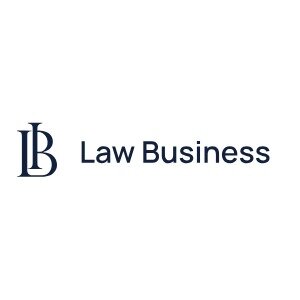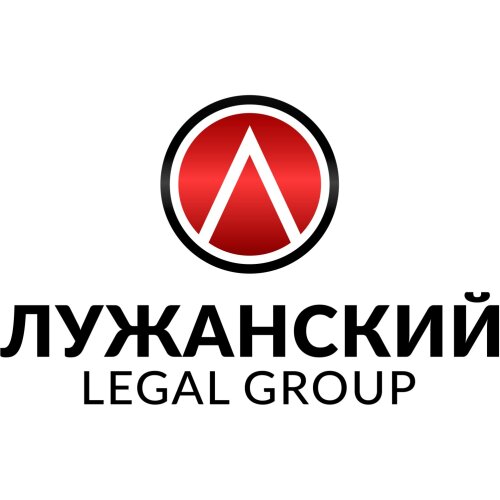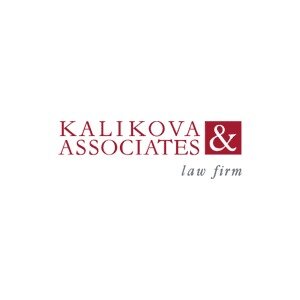Best Government Relations & Lobbying Lawyers in Bishkek
Share your needs with us, get contacted by law firms.
Free. Takes 2 min.
List of the best lawyers in Bishkek, Kyrgyzstan
About Government Relations & Lobbying Law in Bishkek, Kyrgyzstan
In Bishkek, Kyrgyzstan, government relations and lobbying are important aspects of interacting with governmental entities to influence legislation and policy decisions. The legal landscape for lobbying in Kyrgyzstan has been emerging alongside its evolving political structure. The country recognizes the need for transparent communication channels between the government and private sectors to foster democratic advocacy and policy-making. However, the regulatory framework governing lobbying activities is still developing, guiding how organizations, businesses, and interest groups can ethically engage with government officials to push for legislative change.
Why You May Need a Lawyer
Legal assistance in the field of government relations and lobbying can prove crucial in several situations:
If you are a business or organization looking to influence local legislation or regulations that impact your operations, you may need counsel on how to engage effectively and ethically. Navigating compliance with Kyrgyzstan's legal requirements when engaging in lobbying activities is essential to avoid legal pitfalls. Additionally, drafting effective advocacy messages or legislative proposals may require legal expertise. For those unfamiliar with the legislative processes or the political landscape, a lawyer can provide strategic insights and access to essential governmental contacts.
Local Laws Overview
Kyrgyzstan's approach to government relations and lobbying is governed by a mixture of international practices and domestic legal traditions. While there is no specific "Lobbying Act," various laws impact lobbying activities, including regulations on transparency, anti-corruption, and public procurement. Key aspects include the rules around government consultation processes, the registration of lobbying activities in certain cases, and ethical standards that prohibit undue influence or bribery. Understanding local administrative law and the workings of parliamentary procedures in Bishkek is crucial for successful lobbying efforts.
Frequently Asked Questions
What is the legal definition of lobbying in Kyrgyzstan?
Lobbying typically refers to activities intended to influence government decision-making, but Kyrgyz law does not provide a singular definition. It encompasses a range of formal and informal interactions with legislators or government officials.
Are there registration requirements for lobbyists in Bishkek?
Currently, there are no specific mandatory registration requirements for lobbyists at the national level, but voluntary registration or declarations may be practiced to promote transparency.
How can I ensure my lobbying efforts are compliant with the law?
Compliance involves understanding applicable transparency and anti-corruption laws, maintaining accurate records of interactions with officials, and adhering to any relevant ethical guidelines.
What is the role of a lawyer in lobbying efforts?
Lawyers can provide critical legal advice on drafting proposals, understanding regulatory frameworks, ensuring compliance, and strategically positioning advocacy efforts within legal boundaries.
What legal risks are associated with lobbying in Kyrgyzstan?
Risks include allegations of bribery, non-compliance with transparency regulations, and potential infringement of anti-corruption laws, which could result in fines or legal action.
Can foreign entities engage in lobbying in Kyrgyzstan?
Yes, foreign entities can participate in lobbying, but they must adhere to local laws and consider any restrictions on foreign influence in political processes.
How does Kyrgyzstan ensure transparency in lobbying activities?
While formal mechanisms are still developing, transparency is often ensured through adherence to anti-corruption laws and voluntary disclosure by lobbying entities.
What influence do non-governmental organizations (NGOs) have in lobbying?
NGOs can play a significant role in shaping public policy through advocacy, particularly on social and environmental issues, often acting as intermediaries between the public and decision-makers.
Are there any prohibitions on methods used in lobbying?
Yes, methods involving coercion, bribery, or other non-transparent practices are prohibited under Kyrgyz law and can result in legal consequences.
What resources are available to understand the complexities of lobbying law in Kyrgyzstan?
Legal experts, industry associations, and government publications are valuable resources for those seeking to better understand and navigate the lobbying landscape in Kyrgyzstan.
Additional Resources
For further information and support, consider reaching out to the following resources:
The Ministry of Justice of the Kyrgyz Republic, which provides legal information and guidance on compliance. The American Chamber of Commerce in Kyrgyzstan, which offers resources and insights on business lobbying practices. Law firms specializing in public affairs and government relations can offer tailored advice and support for navigating local legal landscapes. Keeping abreast of news from local governmental bodies can also offer insights into emerging legislative priorities and opportunities for advocacy.
Next Steps
If you need legal assistance in government relations and lobbying in Bishkek, consider the following steps:
Determine your specific needs and objectives for engaging in lobbying activities. Seek out legal professionals or firms with expertise in government relations and an understanding of Kyrgyzstan's legal landscape. Arrange consultations to discuss your goals, compliance requirements, and strategies. Regularly review updates to national and local laws that might affect your lobbying efforts. Engage with networks and professional associations for ongoing support and insights into best practices in government relations and lobbying.
Lawzana helps you find the best lawyers and law firms in Bishkek through a curated and pre-screened list of qualified legal professionals. Our platform offers rankings and detailed profiles of attorneys and law firms, allowing you to compare based on practice areas, including Government Relations & Lobbying, experience, and client feedback.
Each profile includes a description of the firm's areas of practice, client reviews, team members and partners, year of establishment, spoken languages, office locations, contact information, social media presence, and any published articles or resources. Most firms on our platform speak English and are experienced in both local and international legal matters.
Get a quote from top-rated law firms in Bishkek, Kyrgyzstan — quickly, securely, and without unnecessary hassle.
Disclaimer:
The information provided on this page is for general informational purposes only and does not constitute legal advice. While we strive to ensure the accuracy and relevance of the content, legal information may change over time, and interpretations of the law can vary. You should always consult with a qualified legal professional for advice specific to your situation.
We disclaim all liability for actions taken or not taken based on the content of this page. If you believe any information is incorrect or outdated, please contact us, and we will review and update it where appropriate.











